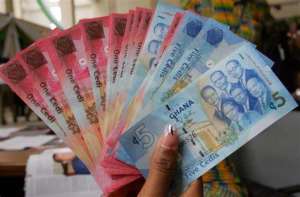
The Ghanaian cedi's depreciation has become a topic of national concern, affecting the economic stability and daily lives of Ghanaians. This issue, while often attributed to external shocks like the COVID-19 pandemic and geopolitical conflicts such as the Russia-Ukraine war, has deeper roots intertwined with domestic economic policies and fiscal management. In this blog post, we delve into the intricate causes of the cedi's decline and propose actionable solutions that could potentially anchor the currency's value and usher in a new era of economic fortitude for Ghana.
The government's policy effects over the last five years have led to periods of sharp fluctuation in the cedi's value. This has had a direct impact on various sectors, from transportation fares to educational fees. The narrative often overlooks how the cessation of the IMF program and the government's borrowing habits have created a domino effect, leading to the currency's significant depreciation. It's imperative to recognize that these financial maneuvers are not isolated incidents; they reflect a broader economic strategy that requires critical reassessment.
One pivotal factor contributing to the cedi's instability is Ghana's heavy reliance on imports. The nation imports a wide range of goods, necessitating the conversion of large amounts of cedis into foreign currencies like the US dollar. This perpetual demand for dollars exerts pressure on the cedi, weakening it further. To address this, a paradigm shift towards local production and reducing import dependency is essential. Policies aimed at bolstering domestic industries and encouraging local consumption could alleviate some of the stress on the cedi.
Another contributing factor to the cedi's woes is the practice of dollarization in the Ghanaian economy. This practice, where goods and services such as real estate, land, and education are priced in US dollars, has led to a constant scramble for dollars among citizens. It's a vicious cycle: as Ghanaians convert more cedis to dollars for these major expenses, the cedi devalues further. A solution to this challenge would be to enforce regulations that require transactions within Ghana to be priced and conducted in the local currency, thus reducing the demand for dollars.
The influence of multinational companies and their profit retention strategies also play a significant role in the cedi's depreciation. Capital flight and the lack of reinvestment of profits locally deplete the nation's foreign currency reserves. To counteract this, the government could introduce policies that incentivize these companies to reinvest a portion of their profits back into the Ghanaian economy, thus helping to stabilize the currency.
The cedi's depreciation is more than just a financial issue; it's a reflection of the economic mismanagement that has plagued the nation for years. Government borrowing to prop up the cedi, rather than implementing sustainable economic reforms, has proven to be a futile strategy. The creation of a robust gold reserve as a financial lever, promotion of exports, and stringent measures against unnecessary borrowing could provide a buffer for the cedi in turbulent times.
In conclusion, Ghana's economic challenges are multi-faceted and require a comprehensive approach that addresses the underlying causes of the cedi's depreciation. By implementing sound economic policies, promoting local production, regulating dollarization, and incentivizing profit reinvestment, Ghana can pave the way for a stable financial future. It is through such strategic measures that the nation can hope to see the cedi regain its strength and the economy flourish once again.
Listen to the show: Ghana in Focus Specal: Currency Woes in Ghana ,Understanding the Cedi' Depreciation and Path Forward (youtube.com)




 Low-profile Walter leads South Africa to promised land of World Cup final
Low-profile Walter leads South Africa to promised land of World Cup final
 NDC takes 24-hour economy proposal to Tamale
NDC takes 24-hour economy proposal to Tamale
 NAPO is not my preferred candidate to partner Bawumia – Appiah-Kubi
NAPO is not my preferred candidate to partner Bawumia – Appiah-Kubi
 Reject all campaigning candidates for running mate – Appiah-Kubi tells Bawumia
Reject all campaigning candidates for running mate – Appiah-Kubi tells Bawumia
 Traditional Council cautions Fiapre people over decision to swear allegiance to ...
Traditional Council cautions Fiapre people over decision to swear allegiance to ...
 Oti Region: Akyode traditional leaders perform purification rituals to usher new...
Oti Region: Akyode traditional leaders perform purification rituals to usher new...
 Prosecution present documents to support claims Richard Jakpa was dismissed from...
Prosecution present documents to support claims Richard Jakpa was dismissed from...
 Mr Logic in court for allegedly defrauding American of $21,000 and GHC48,000
Mr Logic in court for allegedly defrauding American of $21,000 and GHC48,000
 Kumasi residents go gay over Dr. Matthew Opoku Prempeh's nomination as NPP runni...
Kumasi residents go gay over Dr. Matthew Opoku Prempeh's nomination as NPP runni...
 There’s no corruption in the deal — Sammy Gyamfi defends NDC gurus in ‘dirty' mo...
There’s no corruption in the deal — Sammy Gyamfi defends NDC gurus in ‘dirty' mo...
